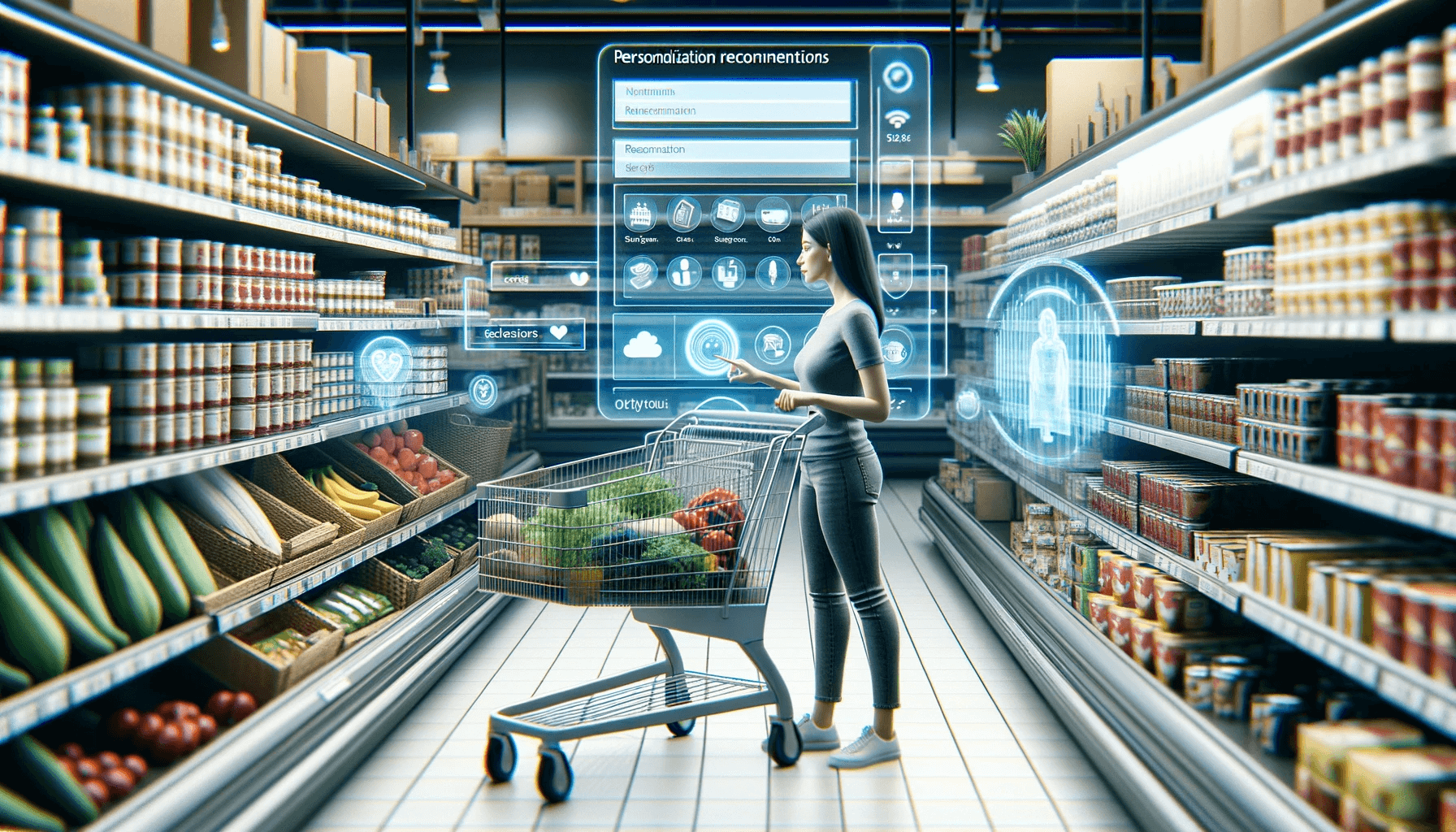
AI Dilemmas in the Grocery Sector: Opportunities for Retailer and Shopper Concerns
Filed Under: Shopper, Food & Beverage, Grocery, Artificial Intelligence (AI)
Kathleen Blum
Vice President, Shopper Insights Research
In the rapidly evolving grocery shopping landscape, technology, and artificial intelligence (AI) have become integral components for retailers and shoppers. The latest Dunnhumby consumer trends report of 2,000 consumers sheds light on the complex relationship between AI, retailers, and shoppers. While AI holds enormous potential for retailers, it’s essential to consider the concerns of shoppers to create a balanced and beneficial shopping experience for all.
Benefits that AI Can Provide to Retailers
- Personalization and Recommendations: The report highlights how AI can enhance personalization, making it easier for grocers to tailor offerings to individual customer preferences, particularly for loyalty programs. This especially appeals to consumers 45 and under, who are more willing to embrace AI for personalized rewards and recommendations.
- Help With Budgeting: With mounting concerns about food insecurity among younger consumers (30% of 18- to 34-year-olds report not having enough to eat), AI budgeting and price comparison tools can be a lifeline. Shoppers under 45 years of age are particularly interested in AI-driven budgeting, and grocers can help them make informed decisions while managing their grocery expenses.
- Enhanced Security: Security is a primary concern for grocers and shoppers alike. AI can be employed for tasks such as store surveillance, theft prevention, and fraud detection, reassuring customers’ safety and reducing losses for grocers.
- Improved Inventory Management: For retailers, AI can optimize forecasting, stock management, and waste reduction, which is especially important for reducing food waste and promoting sustainability. This aligns with the growing consumer demand for environmentally responsible practices.

Shopper Concerns About AI
While AI presents numerous benefits for grocers, it’s important to address the concerns of shoppers, specifically:
- Loss of Jobs: Shoppers are concerned about the potential loss of jobs due to AI adoption in grocery stores, reflecting broader fears about automation and its impact on employment overall.
- Security and Privacy: They are also worried about their personal data and privacy when using AI-driven systems, highlighting the need for robust security measures and transparent data policies.
- Loss of Personal Touch: Some consumers fear that AI will replace the human touch in customer service, impacting the personal connection with store staff.
- Misinformation: There is also worry about the spread of misinformation through AI systems, potentially impacting their shopping decisions.
C+R POV
AI offers retailers significant opportunities to enhance the shopping experience, improve efficiency, and address concerns like budgeting and sustainability. However, the skepticism and lack of trust among shoppers remain significant hurdles. Retailers must find ways to build trust and alleviate shoppers’ concerns, ensuring that AI is adopted responsibly and ethically.
To fully capitalize on the potential of AI in the grocery sector, it is crucial for retailers to:
- Engage in transparent communication about data usage,
- Invest in robust security measures, and
- Provide options for shoppers who prefer a more traditional shopping experience.
As AI technology continues to evolve, finding a balance between its benefits and addressing shopper concerns will be the key to retailers’ success in their industry’s AI-driven future.

